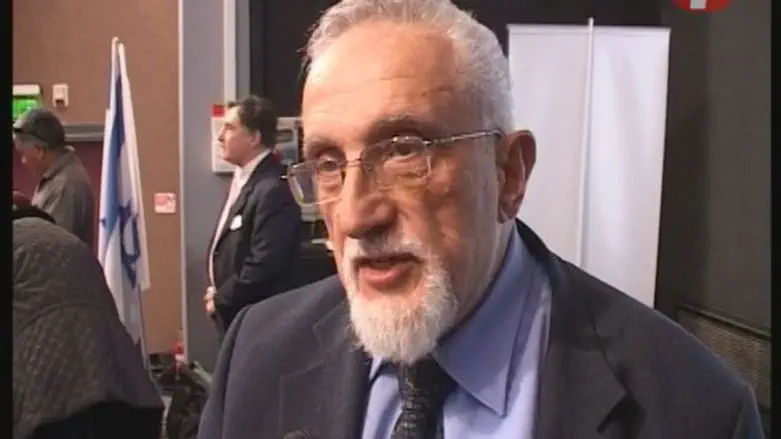
A conference on modern Jewish existence in a world of threats and hostility was held at Ariel University until November 30. In the opening session, Dr. Manfred Gerstenfeld advocated the establishment of Post-Holocaust studies as an interdisciplinary area. He said that it should be detached from Holocaust studies because research on this focuses on mass murders, victims, perpetrators, and bystanders. Such research will always overshadow the analysis of the impact of the Holocaust on post-war society.
Dr. Gerstenfeld explained that there are many disciplines which concern the period elapsed since the end of the Second World War. He mentioned sociology, psychology, finance, ethics, theology, philosophy, and various others.
He gave various examples of Post-Holocaust issues of which only an overview can be obtained if one uses a variety of disciplines. He mentioned the complex subject concerning the study of survivors. Topics related to this include their post-war immigration, the way they were accepted in the societies they lived, their contribution to these societies, the treatment of their traumas, and the collection of their testimonies.
Yet another issue where analysis from many disciplines is required is restitution. One aspect is the percentage of the value of pre-war Jewish assets stolen by the Nazis and restored after the war. Calculations show that about 20 percent were restituted. Subfields which have been developed include the restitution of art and dealing with insurance claims. Furthermore, history books about restitution, an issue which took place entirely after the Holocaust, have been written. Gerstenfeld pointed out that there can hardly be a restitution debate without analysis of guilt, often followed by apologies.
A third major complex is that of memory. Holocaust monuments and their development are one aspect of this. Initially, reference to Holocaust victims usually took place within synagogues, Jewish institutions, and cemeteries. The nature of memorial ceremonies is a Post-Holocaust subject. So is the issue of the architecture of Holocaust related museums, how they are structured, and how they market themselves.
Related to the memory subject, is the large complex of its abuse. Holocaust denial doesn’t belong to Holocaust studies. It almost entirely developed after the Second World War. Worse, even, is Holocaust inversion – claiming that Israel behaves like the Nazis or that Israel conducts a war of extermination against the Palestinians.
One among the many examples Gerstenfeld gave was the major theological changes in large parts of Christianity, which took place after the war. The Catholic Church radically changed its position on the guilt of the Jews for the death of Jesus. The declaration Nostra Aetate in 1965 by Pope Paul VI announced a new theological approach of Roman Catholicism toward Jews. The discussion on the behavior of Pope Pius XII during the war has reached major interest. It may well have delayed a possible declaration of sainthood.
Gerstenfeld said that the next step in Post-Holocaust studies should be the establishment of an inventory of the many articles and books in the various disciplines belonging to the field. Yet, he pointed out, only once Post-Holocaust is established as an academic field, one can start to research systematically the interaction between the various disciplines within Post-Holocaust studies.